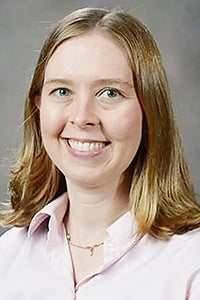Ferguson: Follow these tips to save veggie seeds from your garden
Published 11:59 am Friday, September 9, 2022

- Mary Helen Ferguson
|
Getting your Trinity Audio player ready...
|
It’s relatively inexpensive to purchase vegetable seeds as compared to transplants. Some seeds can be sown directly into the garden, while for other vegetables, it’s best to grow transplants and then plant those.
If you plan to save seed from their own plants to use in the future, there are a few things to know.
First, seeds produced by hybrid vegetables will not typically produce plants identical to the parents. If you plan to save seed, choose an “open-pollinated” variety that is suited to our climate. Many bean and pea varieties are open-pollinated. Examples of open-pollinated varieties of other vegetables include Mortgage Lifter tomato, Jupiter bell pepper, Black Beauty eggplant, Clemson Spineless okra, Jubilee II watermelon, Florida Broadleaf mustard green, Vates collard, Purple Top White Globe turnip, Detroit Dark Red beet, and Danvers 126 carrot.
Even if you have an open-pollinated variety, if a second variety of the same crop (or a closely related one, in some cases) is nearby, there is a chance that the seeds will be the offspring of cross-pollination and thus will not produce plants identical to those from which they were harvested.
The likelihood of cross-pollination depends on the vegetable as well as the distance from another variety. Vegetables that have “perfect” flowers (ones with both male and female parts in the same flower) and are naturally self-pollinated — such as tomatoes, peppers, beans and peas — are more likely to produce seed resulting from self-pollination.
On the other hand, cucurbits (melons, cucumbers, squashes, and gourds) have separate male and female flowers and are likely to be cross-pollinated if another variety is nearby.
A final caution regarding saving vegetable seeds is that some bacteria, fungi, and viruses that cause plant diseases can be carried on or within seed. Examples of common vegetable pathogens that can transmitted by seed include those that cause anthracnose of cucurbits and bacterial spot of tomato and pepper. Avoid saving seed from unhealthy plants.
There are seed treatments that can be used to reduce the chance of pathogens being carried over on or within seed. Options depend on the disease and the type of vegetable seed.
Techniques for collecting seed vary by vegetable. Some, like tomatoes, can be harvested at the time that they’re ready to eat. Others, like beans and peas, should be left on the plant until they’re well past the stage when you’d harvest them for fresh consumption. Of course, you must wait for vegetables like collards and beets to flower and produce seed before collecting it.
A commonality is that seed to be saved should be dry before storage. A rule of thumb is that it should be dry enough that it isn’t dented when a fingernail is pressed into it. (Some types of plants produce seeds that do not survive this degree of drying. These seeds are called “recalcitrant” and include those of avocado, citrus, oak, and pecan. Vegetable seeds are generally “orthodox,” though, and do tolerate drying. Mirliton is an exception).
“Cool and dry” is a summary of recommended storage conditions for orthodox seeds. If you have a room where cool, low humidity conditions are maintained, you can store dry seeds there in a paper envelope. A refrigerator is typically a good option for seed storage. However, since refrigerators are often quite humid, take measures to keep the seeds themselves dry. For example, you could put seeds in a jar or plastic bag, along with a packet of silica gel or powered milk from a package that’s just been opened.
Be sure to label seed containers with the variety name and collection date.
Try to use seeds within a year. Generally, the longer seeds are stored, the fewer will germinate. Seeds stored in warmer, more humid conditions will lose viability faster.
Let me know if you have questions.
Dr. Mary Helen Ferguson is an extension agent with the LSU AgCenter, with horticulture responsibilities in Washington and Tangipahoa parishes. Contact Ferguson at mhferguson@agcenter.lsu.edu or 985-277-1850 (Hammond) or 985-839-7855 (Franklinton).




